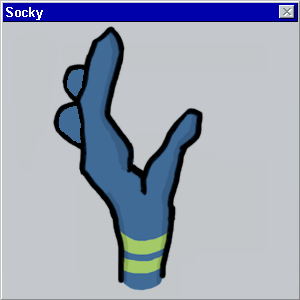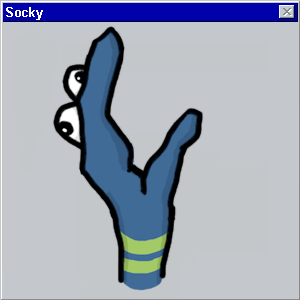Calling all animals
August 27, 2005 8:46 AM Subscribe
Ideophones are words that are usually spoken but not written and are often onomatopoeic, including (but not limited to) the calls—often reduplicated—with which we beckon domestic animals, kindred to our animal imitations. In the States there are many more pig calls beyond soo-ee. Maxim Gorky wrote that the sound tse tse is used to call pigs in Russia. In Spanish coch is used.
Americans use pipi and biddy to call chickens and turkeys. In Ambon Malay chickens are called with kurrrrr or pan kur. In Kiswahili you call chickens with gurúgurúgurúgurú, call dogs with aháháhá, and straying cattle with ishiyeeyeeeeee or ngoyéeeeee. In Sweden, they call cattle with a loud, high-pitched kulning (akin to yodeling). Cervantes wrote that they use tus tus to call dogs in Spain. One source says in Coolderry, Ireland, they use gen-gen to call pigs to ford, puddly pudde to call ducks, peopeo to call horses, and geg geg to call geese. In Iceland, kibbakibb is used to call sheep. In the Hiligaynon language of the Philippines, they call cats with míming. In the parish of Nantcwnlle in Wales they have their own set of calls.
Cool post!
posted by klangklangston at 10:42 AM on August 27, 2005
posted by klangklangston at 10:42 AM on August 27, 2005
Oh, and in Belgium, it's "Wow! Wow!" when dogs speak. I learned that from Tintin.
posted by klangklangston at 11:01 AM on August 27, 2005
posted by klangklangston at 11:01 AM on August 27, 2005
A former professor loved to talk about ideophones from a slightly different angle-- how individual languages mimic animal sounds differently, and what that may indicate about phonetic inventories, etc.
english: cock-a-doodle-doo
southern france: kikiriki
fan-freakin-tastic post, yo.
posted by markovitch at 11:13 AM on August 27, 2005
english: cock-a-doodle-doo
southern france: kikiriki
fan-freakin-tastic post, yo.
posted by markovitch at 11:13 AM on August 27, 2005
A small derail: How do you spell that sound one makes when exhaling in exasperation through the mouth and the lips vibrate, the shoulders shrug and you feel speechless?
Excellent post Mo Nickels, I love this kinda stuff.
posted by alteredcarbon at 11:25 AM on August 27, 2005
Excellent post Mo Nickels, I love this kinda stuff.
posted by alteredcarbon at 11:25 AM on August 27, 2005
depends on the language, methinks
for english, i propose 'phhhmmmm'
posted by markovitch at 11:33 AM on August 27, 2005
for english, i propose 'phhhmmmm'
posted by markovitch at 11:33 AM on August 27, 2005
Klangklangston and Markovitch, note that this post isn't about the sounds we make when we imitate animals (which is discussed in this Ask Metafilter thread I linked to above), but the sounds we make when we want them to come to us.
posted by Mo Nickels at 11:43 AM on August 27, 2005
posted by Mo Nickels at 11:43 AM on August 27, 2005
Love it! I quack, gobble, and croak in your honor.
A few remarks:
I wish linguists would take the trouble to use actual English words when writing English sentences. The first (=tenth) link includes the sentence:
Another important feature of ideophones is that they use a lot of reduplication, triplication and quadriplication.
Dude, it's quadruplication. Look it up. (It's not a typo, because it occurs in the final paragraph as well.)
The Gorky link is a translation of (a bit of) his story Moi sputnik (My Fellow Traveler); the "tse', tse'" paragraph (near the end of part II in Russian, though apparently in Chapter III of the translation) is written to indicate a heavy Georgian accent, and the "tse" is actually tstse (with a double ts):
- Я тэбэ устрою т-такую жизнь! Цце, цце! Вино бу-дэшь пить - сколько хочэшь, баранины - сколько хо-чэшь! Жэнишься на грузынкэ, на толстой грузынкэ, цце, цце, цце!.. Она тэбэ будэт лаваш печь, дэтэй родить, много дэтэй, цце, цце!
I know a little Georgian and have a bunch of reference works, but I can't find anything like tstse in any of them; I'm guessing it represents a clicking sound rather than an actual word or syllable.
As for Spanish coch, according to the Diccionario Latinoamericano it's specifically Aragonese:
En las voces aragonesas de Torres Fornes hallo coch-coch para acariciar al cerdo, y efectivamente, cocho en Navarra, Álava y Asturias, y gocho en Galicia y Castilla, vale el cerdo y en Berceo (Duelo, 197).
posted by languagehat at 12:08 PM on August 27, 2005
A few remarks:
I wish linguists would take the trouble to use actual English words when writing English sentences. The first (=tenth) link includes the sentence:
Another important feature of ideophones is that they use a lot of reduplication, triplication and quadriplication.
Dude, it's quadruplication. Look it up. (It's not a typo, because it occurs in the final paragraph as well.)
The Gorky link is a translation of (a bit of) his story Moi sputnik (My Fellow Traveler); the "tse', tse'" paragraph (near the end of part II in Russian, though apparently in Chapter III of the translation) is written to indicate a heavy Georgian accent, and the "tse" is actually tstse (with a double ts):
- Я тэбэ устрою т-такую жизнь! Цце, цце! Вино бу-дэшь пить - сколько хочэшь, баранины - сколько хо-чэшь! Жэнишься на грузынкэ, на толстой грузынкэ, цце, цце, цце!.. Она тэбэ будэт лаваш печь, дэтэй родить, много дэтэй, цце, цце!
I know a little Georgian and have a bunch of reference works, but I can't find anything like tstse in any of them; I'm guessing it represents a clicking sound rather than an actual word or syllable.
As for Spanish coch, according to the Diccionario Latinoamericano it's specifically Aragonese:
En las voces aragonesas de Torres Fornes hallo coch-coch para acariciar al cerdo, y efectivamente, cocho en Navarra, Álava y Asturias, y gocho en Galicia y Castilla, vale el cerdo y en Berceo (Duelo, 197).
posted by languagehat at 12:08 PM on August 27, 2005
Thanks, LH. My best dictionaries are at the office, so I couldn't check the Spanish properly.
I wondered about the Gorky, too, and thought maybe it was more akin to the clicking or clucking people do to call the attention of horses.
posted by Mo Nickels at 1:28 PM on August 27, 2005
I wondered about the Gorky, too, and thought maybe it was more akin to the clicking or clucking people do to call the attention of horses.
posted by Mo Nickels at 1:28 PM on August 27, 2005
Excellent post and links, Mo. Perhaps ideophones also work the other way 'round:
• Elephants Can Mimic Traffic, Other Noises
• Whale Expert Deciphers Odd Elephant Calls
Maybe all those bird mimics are just trying to get our attention.
posted by cenoxo at 2:57 PM on August 27, 2005
• Elephants Can Mimic Traffic, Other Noises
• Whale Expert Deciphers Odd Elephant Calls
Maybe all those bird mimics are just trying to get our attention.
posted by cenoxo at 2:57 PM on August 27, 2005
depends on the language, methinks
for english, i propose 'phhhmmmm'
posted by markovitch
Cool.
posted by alteredcarbon at 7:10 PM on August 27, 2005
for english, i propose 'phhhmmmm'
posted by markovitch
Cool.
posted by alteredcarbon at 7:10 PM on August 27, 2005
Facinating...both of my parents are from different parts of rural Ireland. When calling the cat my father would say "pshist, pshist, pshist". My mother calls cats with "cooush, cooush, cooush". One day someone overheard me trying to coax a cat out from underneath a car and asked me if I was Irish. She said that they only other person she had ever heard calling a cat like that had been from Ireland. Before that I had no idea that animal calls were region specific.
Great post.
posted by echolalia67 at 8:14 PM on August 27, 2005 [1 favorite]
Great post.
posted by echolalia67 at 8:14 PM on August 27, 2005 [1 favorite]
I bought my little girl a shirt that says "Gock, gock, gock,my little chicken" in Amsterdam and it has become a favourite.
In Oz when you call the chickens you yell "chookchookchook".
posted by bystander at 4:57 AM on August 28, 2005 [1 favorite]
In Oz when you call the chickens you yell "chookchookchook".
posted by bystander at 4:57 AM on August 28, 2005 [1 favorite]
great post, Mo Nickels!
posted by esperluette at 8:24 AM on August 28, 2005
posted by esperluette at 8:24 AM on August 28, 2005
Splendid post. Never having needed to attract the attention of an animal myself, I had no idea.
posted by jack_mo at 3:37 PM on August 28, 2005
posted by jack_mo at 3:37 PM on August 28, 2005
« Older bad cop--no highball | The Story of the 27th Amendment Newer »
This thread has been archived and is closed to new comments


posted by Mo Nickels at 9:04 AM on August 27, 2005